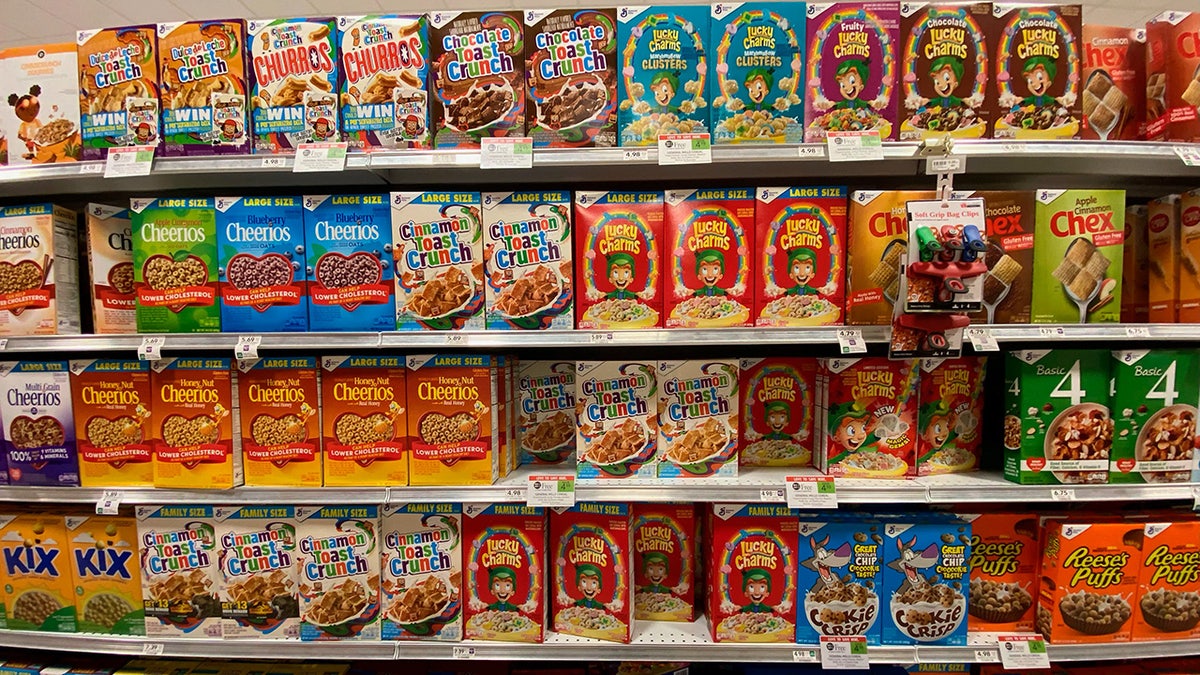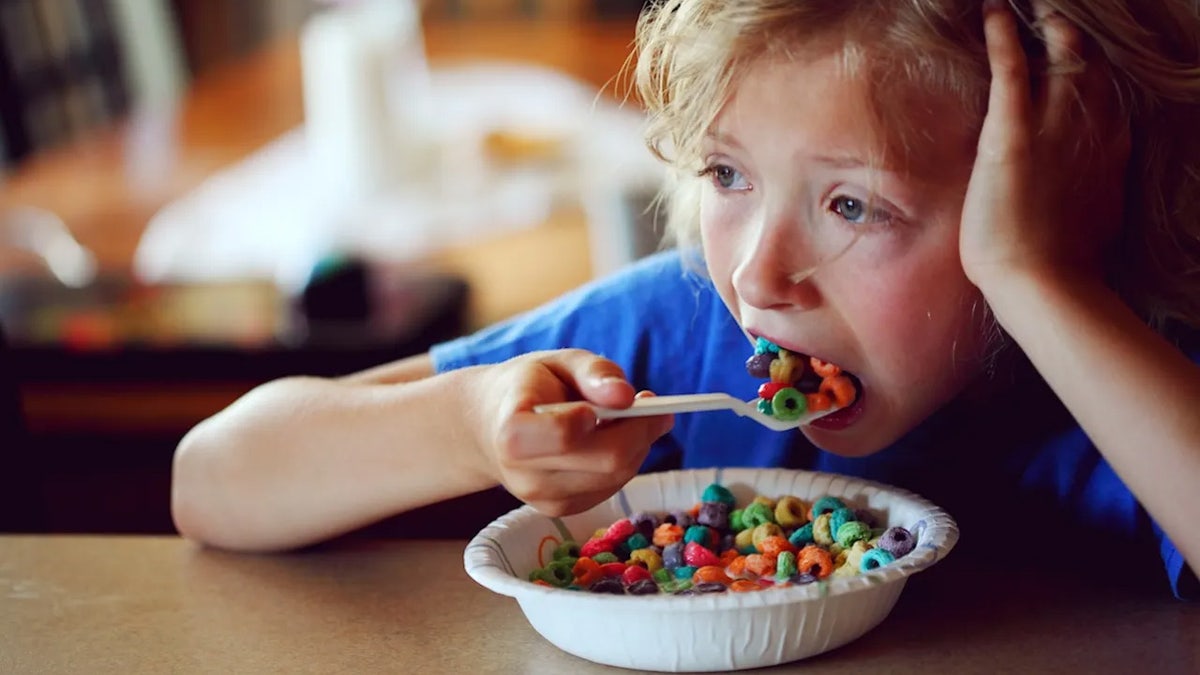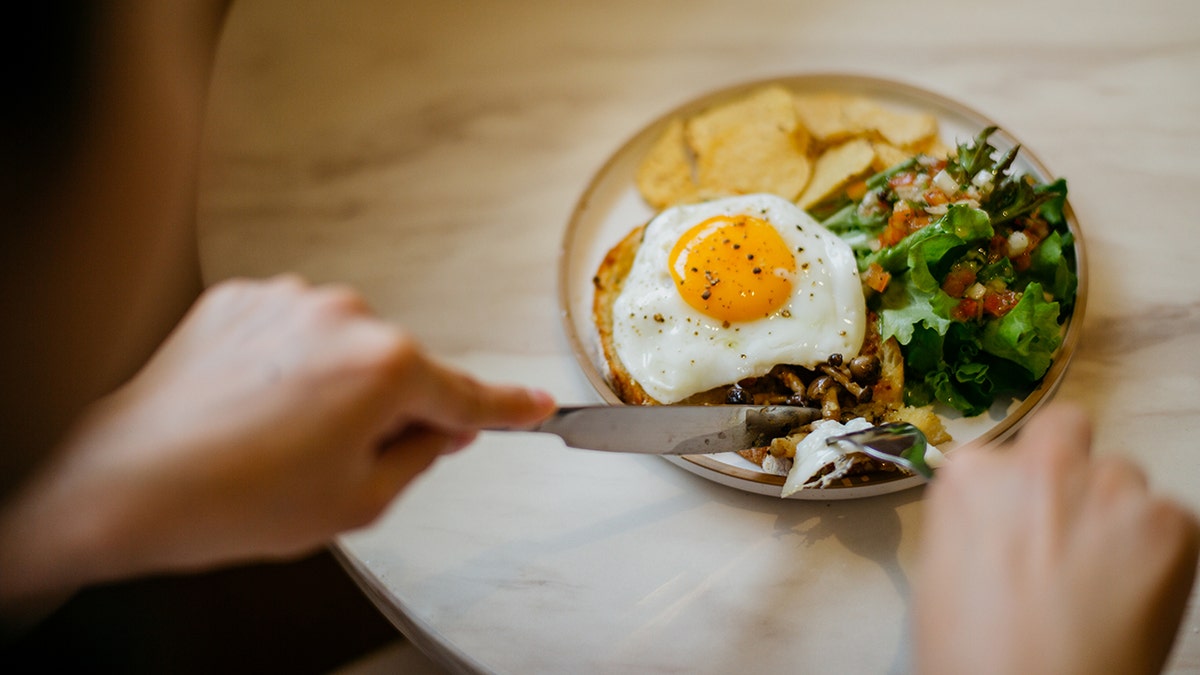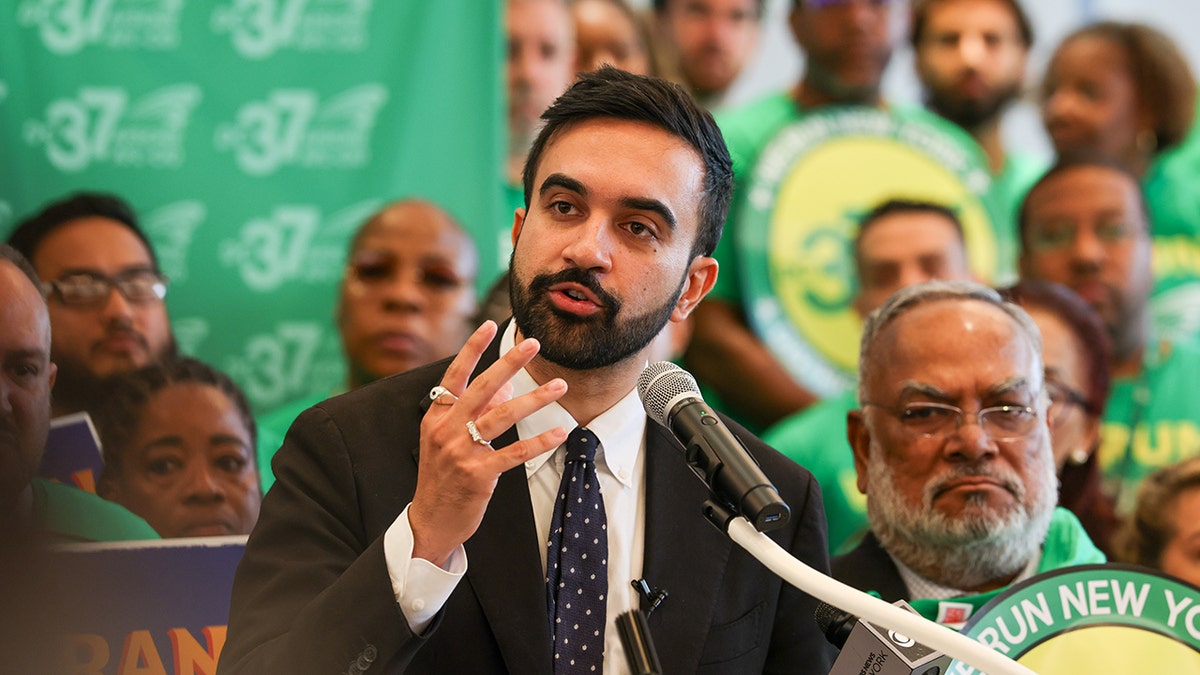
NEWYou can now listen to Fox News articles!
Once the breakfast of champions for millions of Americans, cereal seems to be losing its crunch — especially among younger generations who are redefining the morning meal.
Sales of boxed cereal, once a pantry staple for generations, have been declining in the United States for over 25 years.
A temporary pandemic-era bump – when more Americans had time for sit-down breakfasts – wasn’t enough to help. Cereal sales in the U.S. dropped over 13% from nearly 2.5 billion boxes in 2021 to 2.1 billion in the same period this year, according to Nielsen IQ.
THIS BREAKFAST MISTAKE MAKES PEOPLE REACH FOR SUGARY SNACKS IN THE AFTERNOON
Since the 1990s, grab-and-go options like Nutri-Grain breakfast bars and Clif Bars have posed a challenge to cereal. Now, yogurt cups and protein shakes are also stealing the spotlight.
Experts claim this isn’t just about convenience, but rather represents a generational shift in how people fuel their mornings.

Cold cereal options are becoming less of a staple in the U.S., with sales down 13% this year compared to 2021. (Lindsey Nicholson/UCG/Universal Images Group/Getty Images)
Members of Generation Z, born between 1997 and 2012, especially are rethinking the way millennials, Gen X and baby boomers approach breakfast, according to Kenton Barello, a vice president at market research firm YouGov.
Gen Zers are less likely to eat breakfast at all and if they do, they’re choosing eggs, fruit, toast and pancakes ahead of cereal, according to YouGov’s research. They also eat more vegetables at breakfast than older generations.
Thirty-six percent of Gen X, born between 1965 and 1980, still opt for cold cereal – 10% more than their Gen Z counterparts, according to YouGov.
BEST AND WORST BREADS FOR YOUR HEALTH, ACCORDING TO NUTRITION EXPERTS
While Gen Zers still buy some boxed cereal, data suggests they eat it as a snack or for other meals.
“With younger generations, there are differences in their relationship with food and these eating moments,” Barello said.
Gen Z social media influencers are embracing the “crunchy” trend — meant to evoke not cereal but granola and signaling a health-focused, all-natural lifestyle.

Amid concerns over food dyes and sugar, today’s younger generations are not eating as much boxed cereal for breakfast as people did in years past. (iStock)
Annika Zude of Iowa, known online as @ThatCrunchyGirlAnnika, posts videos on TikTok and Instagram of highly processed foods she’d never eat.
“I would never eat sugary cereals if I wanted my day to go well,” Zude, a teenager, told Fox News Digital. “You couldn’t pay me to eat them.”
Instead, she said she prefers to “eat something nutritious like steak, eggs or ground beef for breakfast.”
BREAKFAST KEY TO MEETING DAILY FIBER NEEDS AMID AMERICAN ‘HEALTH CRISIS’
Concerns about food processing and sugar intake have dimmed enthusiasm for cereal for consumers across generations, too. Just one cup of Lucky Charms contains 24% of the recommended daily sugar intake, for example.
The artificial dyes used in many cereals have been under intense scrutiny of late, largely a result of the growing Make America Healthy Again (MAHA) movement.
Last year, demonstrators rallied outside WK Kellogg’s headquarters in Battle Creek, Michigan, demanding the removal of the dyes. Kellogg and General Mills have since pledged to phase them out.

Members of Generation Z are eating more eggs and vegetables at breakfast, according to research. (iStock)
Among Kellogg’s pledges: The company said it’s “reformulating our cereals served in schools to not include FD&C [food, drug and cosmetic] colors by the 2026-27 school year,” according to a statement on its website. It also says it “will remove FD&C colors from the small percentage of our foods in retail that contain them today, by the end of 2027.”
For more Lifestyle articles, visit foxnews.com/lifestyle
It added, “We are committed to continue working with HHS and FDA to identify effective solutions to remove FD&C colors from foods.”
No more ‘hidden ingredients’
“Americans today want to recognize what’s in their breakfast and know that it’s doing something good for their bodies,” Jennifer Hillis, a registered dietitian and citrus nutrition research liaison at the University of South Florida, told Fox News Digital.
“They don’t want any hidden ingredients,” Hillis added. “That’s why I always recommend building breakfast around core foods that will help fill you up and provide you with key nutrients to have a successful day.”
CLICK HERE TO SIGN UP FOR OUR LIFESTYLE NEWSLETTER
Italian confectioner Ferrero Group – maker of Ferrero Rocher chocolates – recently said it plans to purchase WK Kellogg, maker of Corn Flakes, Froot Loops, Rice Krispies and other popular brands.
But the sale doesn’t mean cereal is at total risk of extinction.

A woman enjoys yogurt with fruit, above. Cereal offerings should cater to different needs, such as high-protein and keto diets, experts say. (iStock)
Packaged food companies have options for turning around their soggy cereal sales, according to Tom Rees, global insight manager for staple foods at the consulting company Euromonitor.
Kellogg’s Mashups line, which mixes brands like Frosted Flakes and Froot Loops into one box, appeals to younger consumers, who tend to like interesting flavor combinations, Rees told The Associated Press (AP).
CLICK HERE TO GET THE FOX NEWS APP
The market may also have a fragmented future, according to Rees. Companies may have to accept that younger buyers want a sweet-and-spicy cereal, while older buyers might want a keto-friendly option.
“The future might be realizing that the era of ‘This brand will serve everybody’ isn’t going to happen,” Rees said.
The Associated Press contributed reporting.



